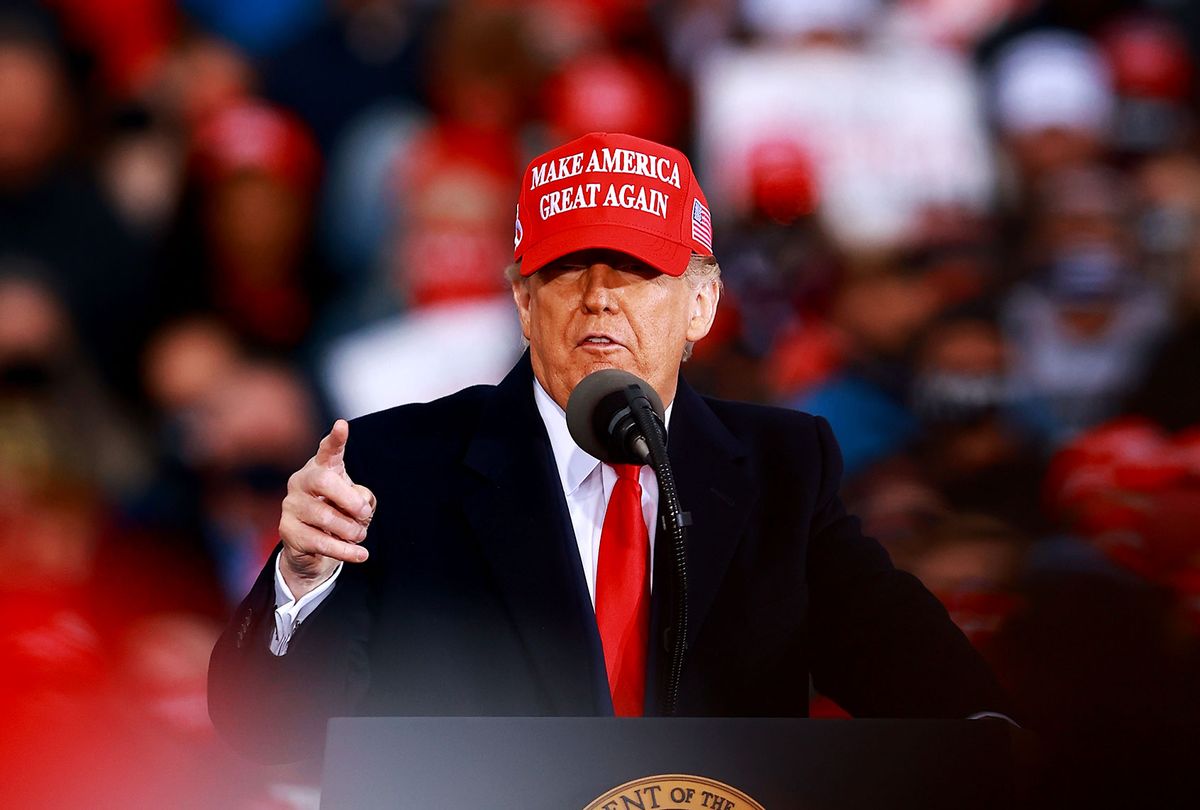Authorities are investigating threatening emails, which demanded that Democratic voters in three states "vote for Trump or else."
The emails were sent earlier this week to voters in Florida, Arizona and Alaska, according to The Washington Post. They appear to have been targeted at Democrats using data from voter files.
Two of the emails reviewed by CBS News included the home addresses of the recipients, one of which was outdated.
"We are in possession of all your information (email, address, telephone… everything)," the message read, according to CBS News. "You are currently registered as a Democrat and we know this because we have gained access into the entire voting infrastructure. You will vote for Trump on Election Day or we will come after you. Change your party affiliation to Republican to let us know you received our message and will comply. We will know which candidate you voted for. I would take this seriously if I were you."
The emails were sent from a domain linked to the Proud Boys, but experts say it appears that someone took advantage of the group's unsecured domain after Google Cloud Services canceled its registration. Source code embedded in emails reviewed by CBS News showed that the messages originated from IP addresses linked to the United Arab Emirates, Saudi Arabia and Estonia. The varying IP addresses suggest that the emails "could have been routed through the servers from nearly anywhere."
Dmitri Alperovitch, the co-founder of the cybersecurity firm CrowdStrike, told the outlet that the messages were sent using a "cloud infrastructure provider in Saudi Arabia called 'Saudi Executive Cloud.'" Despite the source code, "there is no indication to suggest that it is a nation-state or otherwise foreign campaign."
"It could be that they are simply relaying through this infrastructure," he said. "In fact, given how this email was sent using their web interface, that's most likely the case — that the people behind this found a vulnerable server in Saudi through which they can route lots of emails."
Enrique Tarrio, the chairman of the Proud Boys and the Florida state director of Latinos for Trump, said that not only was the group was not involved but also he did not know where the emails came from. Tarrio told CBS he believed they were sent by someone "that's not very fond of us."
"If somebody's trying to intimidate voters, they're probably successful," he told the outlet. "The damage is done to some people that aren't very media savvy, you know, like a 70-year-old that gets an email like this and is not going to go out to vote."
Debi Martinez, a resident of Alachua County, Fla., who received one of the emails, told CBS News that she was "not intimidated by this scam looking email." However, "elderly mother very much was."
The Alachua County Sheriff's Office said it was working with federal and local law enforcement to investigate the origin of the emails. Alachua County was previously the target of a cyberattack by Russia's military intelligence operation in 2016.
A spokesperson for the Alaska Democratic Party told The Post that the FBI was "now involved in the investigation." Tarrio also told the outlet he had spoken with the FBI.
Christopher Krebs, the head of the Department of Homeland Security's Cybersecurity and Infrastructure Security Agency, said on Twitter that the agency was "aware of threatening emails with misleading info about the secrecy of your vote."
"Ballot secrecy is guaranteed by law in all states," he said. "These emails are meant to intimidate and undermine American voters' confidence in our elections."
It remains unclear how many emails were sent in the operation. A spokesperson for the University of Florida, which is based in Alachua County, told CNN that 183 people at the school had received the emails. The Lawyers' Committee for Civil Rights Under Law said it had received three dozen reports of voters receiving similar messages.
"Regardless of who is behind this effort it seems the goal is to discourage people from freely casting their ballots," Kristen Clarke, the group's executive director, told the outlet.
"This is absolutely something to be concerned about," John Scott-Railton, a senior researcher at the Citizen Lab at the University of Toronto's Munk School of Global Affairs and Public Policy, told The Post. "This is what election interference looks like."



Shares